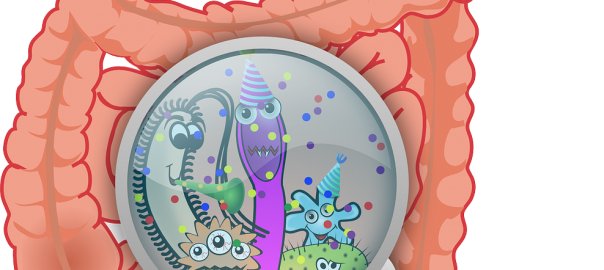What is a FODMAP?
FODMAP is an acronym used to identify a series of short-chain carbohydrates and sugar alcohols in foods that are either naturally occurring, or used as food additives. This acronym stands for:
Fermentable – these items are broken down by the bacteria in our large bowel
Oligosaccharides – “oligo” means “few”, “saccharide” means sugar. These are individual sugars which are chained together
Disaccharides – “di” means two meaning this is a molecule with two sugars
Monosaccharides –(non-intoxicating) sugar alcohols
And
Polyols – a form of carbohydrate that is only partially digested
Does your gut hurt?
Do you have significant digestive health issues? After you eat do you feel ill or very tired? Do you have cramps or other digestive health issues? If so you are probably one of the millions of people who struggle with some form of Irritable Bowel Syndrome (IBS). The causes of IBS are many and varied but the one thing that they all have in common is that they start in the gut. And many of these issues can be resolved by changing your diet.
Some people with gut health issues may try a gluten-free diet. If that doesn’t quite seem to do the trick they then look at the possibility that it’s not the gluten but the glyphosate (the active ingredient in Roundup which is used to dry out crops before harvesting) that is the problem. So they avoid that. And while that often helps it may not be enough. If the issues are IBS, or if there are concerns about digestion in general, you may find that a low FODMAP diet is the answer.
Common Symptoms of Digestive Health Issues
While a low FODMAP diet can be a good choice for people with IBS or related issues, it can also be supportive for those with general digestive health problems. A low FODMAP diet does this by eliminating those foods which might be triggers. Some of the signs that you may want to consider this diet include:
- Abdominal pain after eating
- Bloating
- Bowel Incontinence
- Cramping
- Regular Constipation or Diarrhea
- Nausea or vomiting
Is your gut health getting worse?
Maybe you are one of those people who has had some form of mild digestive health issues for years. Or you’ve been diagnosed with IBS but it’s never been “that bad.” But your gut health has been getting worse lately. While there is always a possibility that this can be part of the aging process, it can also be due to your diet.
If you have regular bloating or stomach upset after eating but can’t identify what’s causing the problem, food journaling and a dietary change can be a good way to figure out what your triggering foods are. Part of the issue is that our meals are/should be made up of a variety of foods. This makes it difficult to pin down specifically which foods are causing the problem.
And while your gut health issues might be related to any of the common food allergens such as gluten, dairy, nuts, etc, it could also be other foods. Following a FODMAP diet removes these foods, plus others, from the diet while you work on restoring gut health.
If you enjoyed this article, please join my community to receive more information and special offers with my free newsletter, Food News You Can Use (I do the research so you don't have to). This concise, informative newsletter gives you updates you need to know about the ingredients for living a healthy life.


